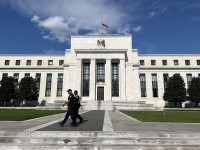EARLIER this year, the world was once again brought to the brink of a systemic banking failure after the collapse of relatively unknown US-based Silicon Valley, Signature, and Silvergate banks.
It took United States President Joe Biden to announce publicly that depositors in these banks would be protected to avoid further bank runs and a potential collapse of the entire financial system.
It is reminiscent of the 2008 financial crisis, triggered by the collapse of several large banks and the failure of Lehman Brothers, and shares the same underlying cause.
George Santayana put it best in his 1905 book, The Life of Reason, observing that “those who cannot remember the past are condemned to repeat it”.
Although detailed post-mortems, reports, and government inquiries are routinely conducted after such crises, and governments customarily implement incremental improvements to financial regulations, this hasn’t prevented subsequent catastrophes.
The answer to why the world is repeatedly brought to the brink of systemic failure lies beyond the obvious causes.
The causes of the 2008 financial crisis were distilled by the G20 Leaders’ Declaration in November 2008 as a confluence of events, including the creation of an unsustainable housing bubble, unbridled and unsound lending practices combined with increasingly complex and opaque financial products, consequent excessive leverage, misguided and outdated legislation and accounting standards, ineffective regulators, and growing capital flows fuelled by extremely accommodative monetary policy settings.
But underlying all of these lurks a failure of the human condition: incessant greed was allowed to dominate.
This manifested in misconduct and decision-making driven by excessive self-interest by a variety of financial market participants, including bankers, politicians, credit rating agencies, mortgage brokers, and others.
On an institutional level, such behaviour can be seen in an organisation’s culture.
Andrew Bailey, now governor of the Bank of England, said in 2016: “There has not been a case of a major prudential or conduct failure in a firm that did not have among its root causes a failure of culture.”
Coerced or pressured to conform
The failure of Silicon Valley Bank was no different.
According to a report by The Washington Post, when the bank identified potential problems in its portfolio from rising US interest rates by using an established forecasting model, management simply changed the model’s assumptions to give the impression rising rates would have minimal impact.
This shows management was informed early of the problems but was more willing to manage external stakeholder perceptions.
“Management always wanted to tell a growth story,” one former employee said.
Referring to the chief executive officer, Greg Becker, a venture capitalist who frequently dealt with him, said: “It’s fair to say he was more focused on the upside than risk management.”
The search for a solution to this problem may be found by examining the institutional forces at work in large organisations such as these.
These include coercive factors involving political power and influence.
Numerous studies have shown lobbying has been successfully used in the US to exert political influence to either stave off unattractive reforms to the banking sector or pass legislation supportive of bank profitability.
In either case, it is at the expense of the public’s benefit.
There is also pressure to conform to social practices or norms.
The banking sector is one where the pursuit of profits at all costs in some institutions is considered normal.
When management is seen to be supportive of any behaviour that achieves this profit objective, the behaviour is validated.
Need for ethical training
This could help explain how organisations such as Credit Suisse consistently find themselves embroiled in scandals.
Wrongdoings have included spying on employees, a bribery scandal in Mozambique involving loans to state-owned companies; operating accounts for drug lords and sanctioned businessmen, publicly known for their involvement in human rights abuses, drug trafficking, corruption, and money laundering, among other serious crimes.
All this in just the past four years.
Credit Suisse finally announced in March of this year that it would no longer pay bonuses to board members.
Norms and expectations within a profession are established through education. Professional networks where ideas are exchanged are influential in establishing these norms.
It seems logical to embed ethical training at the university and professional body levels to instil the appropriate norms in students and young professionals. Getting in early before the minds of the world’s future financial operatives can be corrupted seems to make sense.
Naturally, much can be done at the board level of banks to foster the most appropriate corporate culture. This is a work in progress.
There is also a role for selective, mandatory reporting on compliance breaches to be made public. There is nothing like being shamed publicly to motivate a board. The International Integrated Reporting Framework is the ideal instrument to pursue this.
However, the fear remains that while the management of financial institutions continues to be subject to decisions influenced by greed and the pursuit of profits at all costs, bank failures and associated risks to financial stability will continue. – 360info, June 30, 2023
Paul Mazzola is a lecturer in banking and finance in the Faculty of Business and Law at the University of Wollongong. Before he joined the university, Paul enjoyed a senior executive career in banking and finance spanning 25 years covering the Australian, European, and Asian Pacific markets, including general management responsibility for a major Australian bank.
Published under Creative Commons and in partnership with 360info.org














.jpg)

.jpg)




